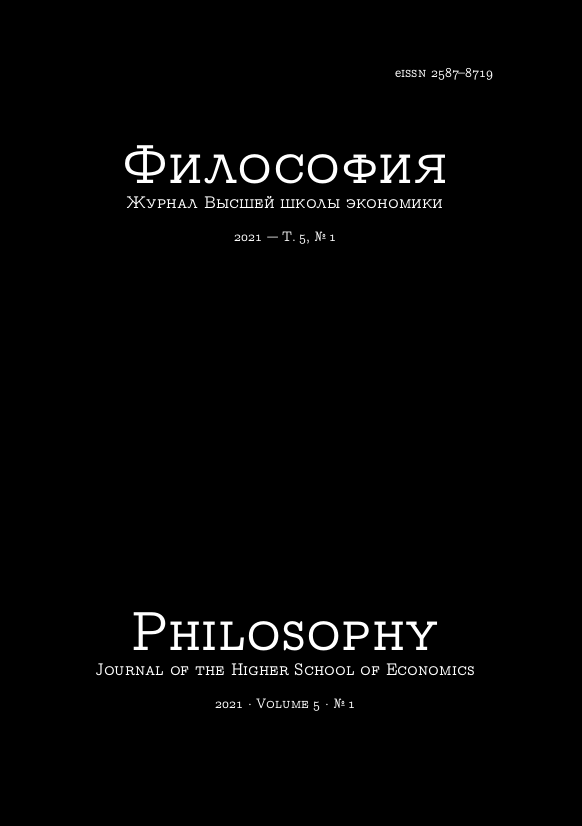The Young-New as a Space of Occurrence in the “World” by V. Bibikhin
Abstract
The article deals with a fragment of a lecture by V.V. Bibikhin, in which eternity is interpreted as a constant renewal, the young-new. The new present, the “now”, makes the preceding present different, thereby turning it into the past. This "now" does not exist in the way of being and is recognized only as the boundary between the past and the future. But it touches us, captures us. The new can't be planned, it can only be allowed, let be. The allowing is a risk, because the unknown will always fall out, something that you cannot prepare beforehand, prepare a way to deal with it. However, in the new we always recognize the same thing. Also to be ready for the new is to be ready for the generosity of being, which gives more and more. Being gives space and time to appear. The non-appeared, the different, seems to us separated with a line, a boundary. And we imagine eternity as something being abroad, beyond the line of time. But for Bibikhin, this is a meeting with the boundary itself, which is different both to what is located on one side of the boundary and to what is on the other. Eternity is not there, “beyond the line”, but here and now: it exists by its absence. Absolutely different, boundary, line, eternity — not just different, but is different, new each time. That is why Bibikhin's eternity is the young-new itself.
Downloads
Copyright (c) 2021 Philosophy. Journal of the Higher School of Economics

This work is licensed under a Creative Commons Attribution-NonCommercial 4.0 International License.






